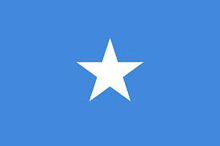
Building Trust in AI through Justice


Array
(
[thumbnail] => https://s42831.pcdn.co/wp-content/uploads/2022/09/hero-placeholder-150x150.png
[thumbnail-width] => 150
[thumbnail-height] => 150
[medium] => https://s42831.pcdn.co/wp-content/uploads/2022/09/hero-placeholder-300x129.png
[medium-width] => 300
[medium-height] => 129
[medium_large] => https://s42831.pcdn.co/wp-content/uploads/2022/09/hero-placeholder-768x329.png
[medium_large-width] => 768
[medium_large-height] => 329
[large] => https://s42831.pcdn.co/wp-content/uploads/2022/09/hero-placeholder-1024x439.png
[large-width] => 1024
[large-height] => 439
[1536x1536] => https://s42831.pcdn.co/wp-content/uploads/2022/09/hero-placeholder.png
[1536x1536-width] => 1400
[1536x1536-height] => 600
[2048x2048] => https://s42831.pcdn.co/wp-content/uploads/2022/09/hero-placeholder.png
[2048x2048-width] => 1400
[2048x2048-height] => 600
[gform-image-choice-sm] => https://s42831.pcdn.co/wp-content/uploads/2022/09/hero-placeholder.png
[gform-image-choice-sm-width] => 300
[gform-image-choice-sm-height] => 129
[gform-image-choice-md] => https://s42831.pcdn.co/wp-content/uploads/2022/09/hero-placeholder.png
[gform-image-choice-md-width] => 400
[gform-image-choice-md-height] => 171
[gform-image-choice-lg] => https://s42831.pcdn.co/wp-content/uploads/2022/09/hero-placeholder.png
[gform-image-choice-lg-width] => 600
[gform-image-choice-lg-height] => 257
)

Over the course of the next month, CIC is looking at the Somali New Deal Compact and discussing how its development and implementation have impacted its effectiveness as a peacebuilding framework. This post is second in a series. The first was on the Somali New Deal Compact’s implementation to date.
Since the signing of the Somali New Deal Compact in Brussels in September 2013, there has been a clear shift in international rhetoric around assistance to Somalia and an increased emphasis on Somali ownership of development priorities. This is a significant development that has the potential to create space for the Federal Government of Somalia (FGS) to assert a degree of authority over aid allocation, but it also has raises fundamental questions about the meaning of “ownership” in context of a highly- fragmented state and how “Somali priorities” are determined.
The development and implementation of the Somali Compact has highlighted a tension that lies at the heart of the relationship between Somalia and its donor partners. On one hand, Somalia needs the space to undertake a political process that will result in broad buy-in from key Somali elites. On the other hand, without a political framework in place, donors cannot provide the level of resources necessary to draw those elites to the bargaining table. The challenge facing those implementing the Compact is how create a credible framework for aligning donor assistance to Somali priorities without predetermining Somali political outcomes.
Last month, CIC released a brief reviewing how Somalis and their international partners approached this tension to date. There is a general consensus that development assistance is most effective when it is aligned with domestic priorities, but in light of the FGS’s fragile grip on power and the number of outstanding core political questions, that assistance can also influence local political outcomes in unintended ways. One of the criticisms most frequently voiced about the New Deal Compact is that it was developed on a timeline that did not allow for the consultations necessary to produce a truly representative and credible set of Somali priorities. This argument holds that the desire to reach an agreement in time for the Brussels Conference resulted in a process overly dominated by Mogadishu-based elites and international actors, which produced a document that fails to reflect the perspectives of a wide spectrum of Somali actors. No fragility assessment was conducted and regional consultations were cursory at best. This lack of broad-based consultation undermines the legitimacy of the Compact among elites who will be vital to any long-term political settlement.
At the same time, donors need aid frameworks in order to justify their expenditures to their domestic constituencies and many hold the view that a prolonged consultation process would only have trapped international actors in an endless cycle of negotiations and further entrenched counterproductive aid patterns. It is also unclear how realistically comprehensive any consultation process could have been given persistent access issues facing both FGS and international actors in the current security environment. Furthermore, there was clear resistance from the FSG to support international consultations, both because they felt that Somalia had been repeatedly assessed without clear benefit and they were wary of any consultations they could not fully control. It remains unclear whether extended consultative process would necessarily have produced a document with broader credibility or greater Somali buy-in.
While the process that led to the signing of the Compact will continue to be debated, what cannot be in dispute is the immediate need to increase ownership going forward. The Compact drafting process implicated created a set of “winners” and “losers” and further centralized priority setting within the FSG in Mogadishu. Somalia’s nascent regional authorities (aside from Somaliland, which secured its own “Special Arrangement” Framework within the Compact) were not directly consulted by international actors and were, at best, superficially consulted by Mogadishu. Likewise, civil society actors were largely excluded from the process and many who have longstanding direct relationships with international donors may believe they have the most to lose from the further centralization of authority in Mogadishu. While the development of New Deal Compact may have been an effective confidence-building exercise between international donors and the FGS, and it may pay dividends if it holds, its potential price is limited trust in the process and its outcomes from a broad base of Somali elites.
If these actors come to view the Compact as a threat to their interests, there is a significant risk they will undermine it in ways that are highly counterproductive to the framework’s core objectives. For this reason, there needs to be as much, if not greater, emphasis on confidence building as there is on project results. It is important that the understanding of “Somali ownership” not be limited to Somalis taking ownership of donors’ technical processes, because if the framework is not implemented in a way that encourages elite reconciliation, it will have been a missed opportunity and may ultimately prove counterproductive. This process takes time and, as the development of the Compact shows, cannot necessarily be accomplished on international donor timelines.


Subscribe to our newsletter and receive regular updates on our latest events, analysis, and resources.
"*" indicates required fields